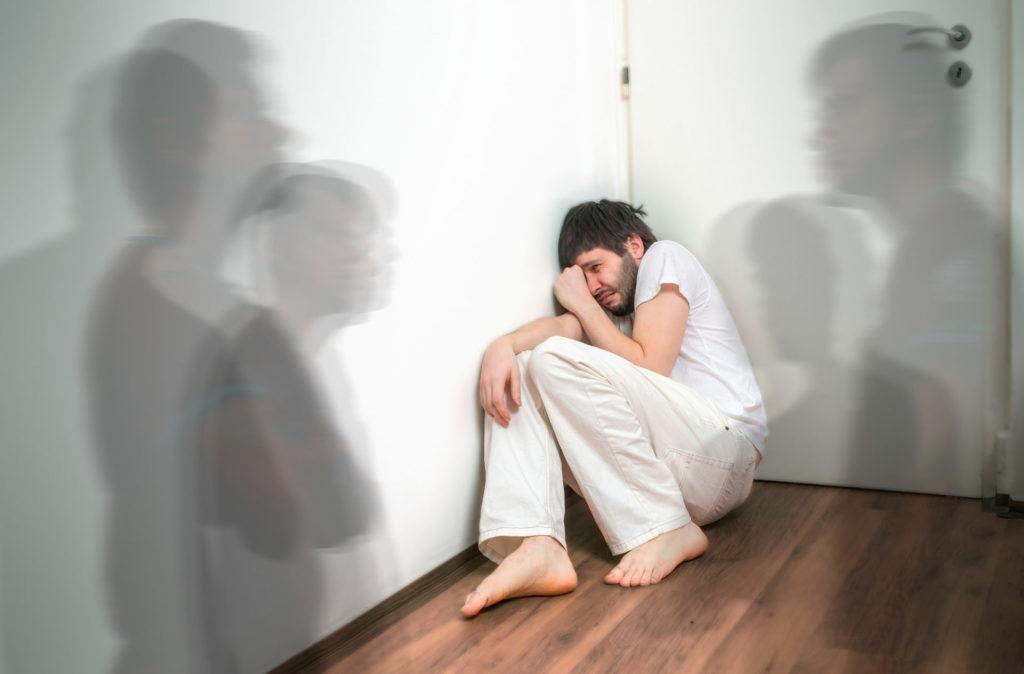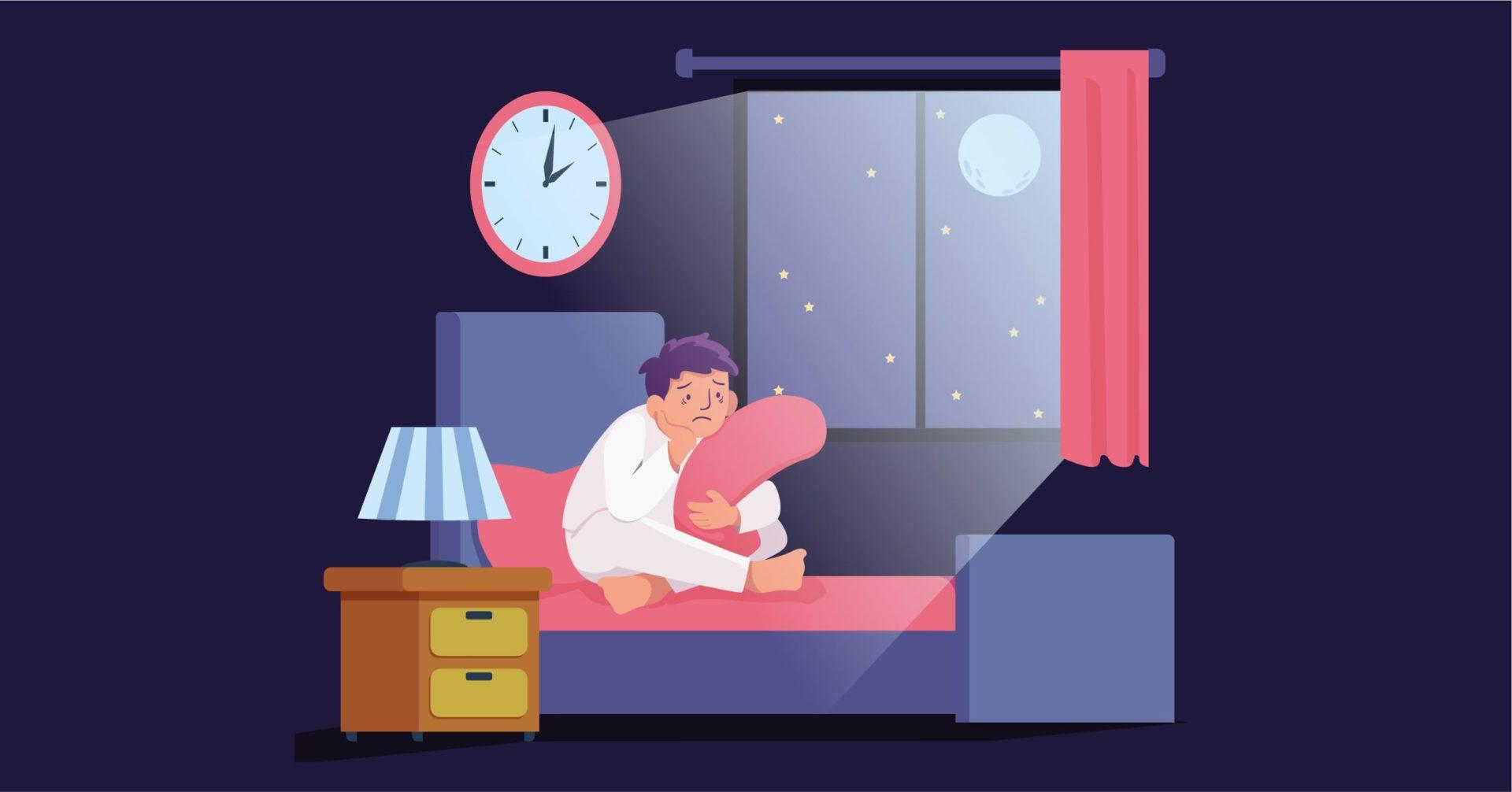Overview
Schizophrenia affects the way a person perceives reality, cognitive or thought processes, expression of emotions and actions. The main symptoms may include hallucinations, delusions, disorganised speech, disorganised motor behaviour and negative affect.
Hallucinations, delusions and psychomotor dysfunction are known as symptoms of psychosis which is mandatory for the diagnosis of schizophrenia. Other symptoms are secondary. They may or may not be present.
A person with schizophrenia tends to believe in things despite there being evidence that they don’t exist. They may see or hear things which do not exist. They may move their bodies in strange ways or get stuck in one position and speak incoherently.
Apart from these, they may laugh when there is no presence of a stimulus. This is known as inappropriate affect.
They may refuse to eat, have vividly disturbed sleep patterns, have out of body experiences known as depersonalisation or derealisation, display somatic symptoms such as pains or aches without any medical reasons.
Common examples of psychosis include seeing or hearing God, being dictated by superior powers, having animals, machines or devil whisper things, beliefs in aliens among many individual beliefs.
Individual factors usually shape the delusions and hallucinations that a person experiences. The person may insist on acting on these beliefs. Some cases may also escalate to suicide.
However, most patients aren’t aggressive towards other people.
Research discussing causes usually note genetic influences as the leading cause of schizophrenia. But epigenetic mechanisms are also identified.
Epigenetic studies of schizophrenia state that although genetic vulnerability is a causative factor, environmental factors also increase chances of vulnerability.
Several studies in that direction have identified stressful environments, maternal depression along with genetic predisposition, and perinatal complications such as hypoxia may increase chances of getting schizophrenia.
Neurological mechanisms of schizophrenia are complicated. Excess of dopamine was initially believed to be the cause of Schizophrenia spectrum disorders.
Newer research in this department has highlighted deficiency in the stimulation of dopamine in the prefrontal cortex, hyperactivity of the dopamine receptors in the basal ganglia in the brain and blocking of NMDA glutamate receptor sites in the brain.
Changes in brain structure are also observed in certain cases. However, further research is warranted.
The disorder vividly affects the individual’s daily functioning. It affects school or work life, and causes interpersonal relationship issues. In some cases, self care efforts are also abandoned and caretaker intervention is required.
Common Signs and Symptoms
The onset of the disorder is quite sudden. The individual may exhibit following symptoms:
- Symptoms of psychosis include delusions, hallucinations and psychomotor dysfunction.
- Delusions are strong beliefs that aren’t true, despite presentation of contrary evidence.
- Hallucinations are seeing, feeling or hearing things which aren’t present.
- Disorganised speech is characterised with incoherent speech which doesn’t make sense – words don’t follow a grammatical structure.
- Catatonic or disorganised gross motor behaviour which comprises difficulty in moving body parts or moving them too fast and in strange ways.
- Negative symptoms which include inappropriate expression of emotions, diminished expression of emotions or avolition(lack of motivation to do tasks and other activities).
Risk Factors
DSM-5 notes genetic factors which increase vulnerability to develop psychotic disorders in general.
Environmental factors such as season of birth, mostly late winter/early spring are also associated with epidemiological occurrence of this disorder. Urban upbringings and certain ethnic minorities are seen to have higher rates of this disorder.
Epigenetic factors are also noted in some research papers. While genetic vulnerability increases the chances of getting the disorder, psychosocial factors such as stress, prenatal and perinatal complications, maternal depression and family dysfunction are also contributing factors towards aggravating the chances of getting this disorder.
Suicide risk for this disorder upto 20%, with 5-6% of deaths by suicide. The risk is higher for younger males with comorbid substance abuse. Depressive symptoms may also increase the risk.
Diagnosis
A clinical psychologist or a psychiatrist often provides the diagnosis for Schizophrenia. There are no specific biomarkers or formal screening tools for the diagnosis of Schizophrenia.
The diagnostic procedure often includes a detailed interview and observation of the client, family history and family interviews. The judgment is based on the exhibition of the following symptoms:
To be diagnosed with Schizophrenia, following symptoms must be present for at least 6 months, out of which symptoms of psychosis (at least one) must be present for 1 month:
- Delusions
- Hallucinations
- Catatonic behaviour
- Grossly Disorganised Speech
- Negative symptoms such as inappropriate affect, avolition, etc.
- Prodromal and residual phases usually include mild forms of odd beliefs or hallucinations, vague speech but no incoherence, may withdraw socially, mood disturbances, etc.
Symptoms of psychosis are often episodic. Hence, for diagnosis, the symptoms of psychosis must last for a month and the other prodromal symptoms and residual symptoms should be present for more than a month.
Prodromal symptoms usually precede full blown episodes and residual symptoms follow an active episode.
Symptoms of psychosis should be recurring over a period of 6 months. With treatment, they may recede. However, it depends on the clinician’s judgement if the symptoms of psychosis were lasting more than six months before treatment.
Psychologists are to specify the exact symptoms and rule out other conditions such as other disorders, medical conditions or substance abuse.
Treatment
Treatment options for schizophreniform disorder are similar to those of other psychotic disorders. Medication is often prescribed by a psychiatrist.
Medication often includes first generation antipsychotics, second generation antipsychotics and benzodiazepines. Antipsychotics help greatly in the reduction of symptoms.
However, second generation antipsychotics may have side effects such as weight gain, hyperglycemia, etc. Benzodiazepines often help individuals with aggravated symptoms.
Psychotherapy is in the form of individual therapy. It helps in explaining the condition to the family and managing triggers. Effective coping skills as well as stress management can be taught through psychotherapy.
Psychosocial interventions have displayed efficacy in terms of reduced risk of relapse/ re-hospitalisation, reduced symptoms of psychosis and increased social cognition.
Differential Diagnosis
1. Major depressive or bipolar disorder with psychotic or catatonic features: The distinction between schizophrenia and major depressive or bipolar disorder with psychotic features or with catatonia depends on the temporal relationship between the mood disturbance and the psychosis, and on the severity of the depressive or manic symptoms.
If delusions or hallucinations occur exclusively during a major depressive or manic episode, the diagnosis is depressive or bipolar disorder with psychotic features.
2. Schizoaffective disorder: A diagnosis of schizoaffective disorder requires that a major depressive or manic episode occur concurrently with the active-phase symptoms and that the mood symptoms be present for a majority of the total duration of the active periods.
3. Schizophreniform disorder and brief psychotic disorder: These disorders are of shorter duration than schizophrenia. In schizophreniform disorder, the disturbance is present less than 6 months, and in brief psychotic disorder, symptoms are present at least 1 day but less than 1 month.
4. Delusional disorder: Delusional disorder can be distinguished from schizophrenia by the absence of the other symptoms characteristic of schizophrenia. Symptoms such as delusions, prominent auditory or visual hallucinations, disorganized speech, grossly disorganized or catatonic behavior, negative symptoms.
5. Schizotypal personality disorder: Schizotypal personality disorder may be distinguished from schizophrenia by symptoms that are associated with persistent personality features.
6. Obsessive-compulsive disorder and body dysmorphic disorder: Individuals with obsessive-compulsive disorder and body dysmorphic disorder may present with poor or absent insight, and the preoccupations may reach delusional proportions.
But these disorders are distinguished from schizophrenia by their prominent obsessions, compulsions, preoccupations with appearance or body odor, hoarding, or body-focused repetitive behaviors.
7. Post traumatic stress disorder: Post traumatic stress disorder may include flashbacks that have a hallucinatory quality, and hypervigilance may reach paranoid proportions. But a traumatic event and characteristic symptom features relating to reliving or reacting to the event are required to make the diagnosis.
8. Autism spectrum disorder or communication disorders: These disorders may also have symptoms resembling a psychotic episode but are distinguished by their respective deficits in social interaction with repetitive and restricted behaviors and other cognitive and communication deficits.
9. Other mental disorders associated with a psychotic episode: The diagnosis of schizophrenia is made only when the psychotic episode is persistent and not caused due to the physiological effects of a substance or another medical condition.
Individuals with a delirium or major or minor neurocognitive disorder may present with psychotic symptoms, but these would be the result of cognitive changes consistent with those disorders.
Comorbidity
Schizophrenia is comorbid with substance-related disorders, anxiety disorders, obsessive-compulsive disorder, panic disorder, schizotypal personality disorder, paranoid personality disorder.
Along with medical conditions of diabetes, metabolic syndrome, and cardiovascular and pulmonary disease.
Specialist
A psychiatrist or a psychologist will be able to deal with Schizophrenia.





